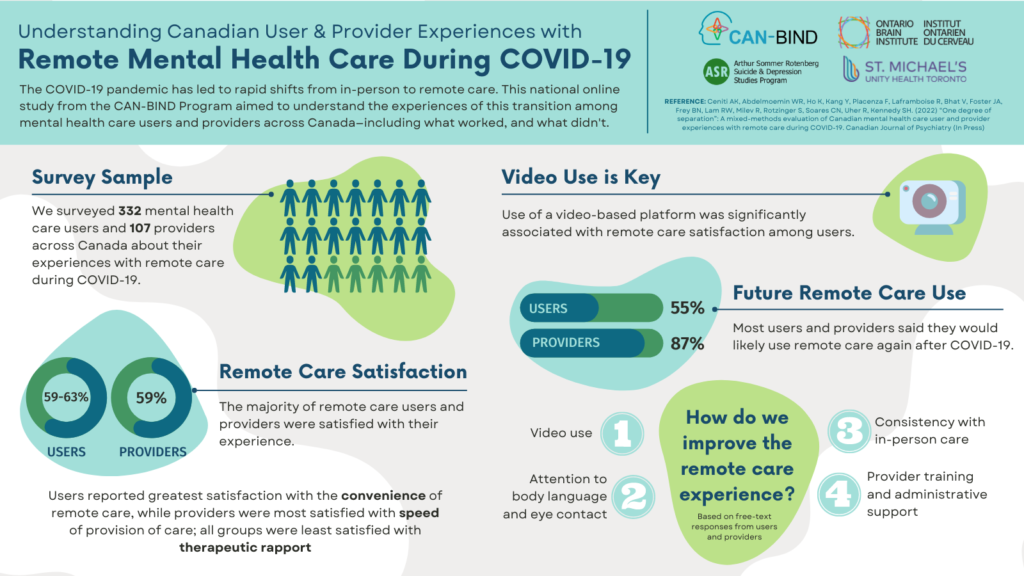Research Summary: Understanding Canadian User and Provider Experience with Remote Mental Health Care During COVID-19
During COVID-19, we have seen a sweeping shift from in-person to remote mental health services (e.g., phone, video). While these remote care methods have existed for a while, their widespread use is unprecedented. It was unclear how mental health care users and providers across Canada were adapting to this transition.
What did we do?
To answer this question, the CAN-BIND Program conducted a national survey of 332 mental health care users and 107 providers from across Canada about their experiences with remote care during COVID-19. The survey asked questions about remote care satisfaction, helpful and unhelpful aspects of remote care use, barriers to use, and suggestions for improvement.
What did we find?
Overall, most users (59-63%) and providers (59%) were satisfied with remote care. Users reported greatest satisfaction with the convenience of remote care, while providers were most satisfied with the speed of provision of care; both groups were least satisfied with therapeutic rapport.
Video use is key!
We found that use of a video-based platform (instead of telephone) was significantly associated with remote care satisfaction among mental health care users. Many people emphasized the importance of visual cues in maintaining a sense of connection remotely.
What about remote care in the future?
Most users (55%) and providers (87%) said they would likely use remote mental health care again after COVID-19. The majority said they’d prefer to use a combination of remote and in-person methods, rather than one method alone.
How do we improve remote care going forward?
Some of the most common suggestions were:
- Attention to body language & eye contact
- Video use
- Consistency with in-person care (e.g., similar appointment structure/norms)
- Provider training & administrative support

Reference:
Ceniti, A. K., Abdelmoemin, W. R., Ho, K., Kang, Y., Placenza, F., Laframboise, R., Bhat, V., Foster, J. A., Frey, B. N., Lam, R. W., Milev, R., Rotzinger, S., Soares, C. N., Uher, R., & Kennedy, S. H. (2022). “One Degree of Separation”: A Mixed-Methods Evaluation of Canadian Mental Health Care User and Provider Experiences With Remote Care During COVID-19. The Canadian Journal of Psychiatry. https://doi.org/10.1177/07067437211070656